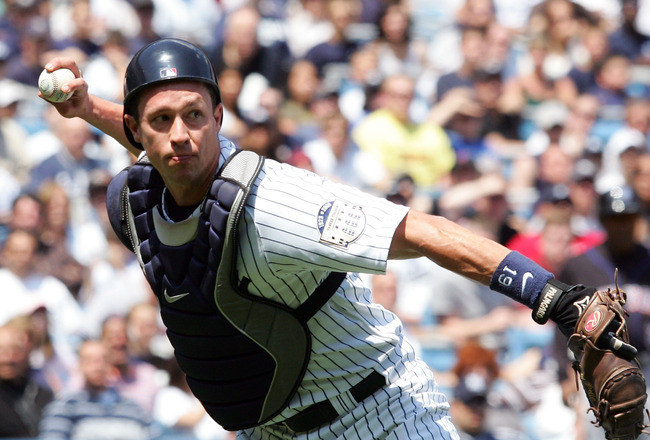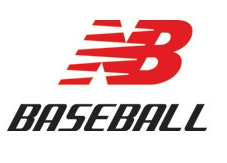 Continuing with our staff Q&A’s, here’s the third of three parts of Program 15 New Balance Future Stars Series lead writer Mike Ashmore’s chat with long-time major-league catcher Chad Moeller.
Continuing with our staff Q&A’s, here’s the third of three parts of Program 15 New Balance Future Stars Series lead writer Mike Ashmore’s chat with long-time major-league catcher Chad Moeller.
Moeller, the national catching coordinator for Program 15, played for the Minnesota Twins, Arizona Diamondbacks, Milwaukee Brewers, Cincinnati Reds, Los Angeles Dodgers, New York Yankees, and Baltimore Orioles over an 11-year career in the big leagues. He brings an exceptional wealth of knowledge to P15, and it was clear in speaking with him how truly intelligent he is in all aspects of the game.
Please enjoy part one of the conversation here, that focuses on Moeller’s involvement with P15, as well as the start of getting to discuss his playing career. Also, don’t miss part two, in which we dive deep into his run as a World Series Champion. Now, enjoy part three…
Mike Ashmore, Program 15: It probably sounds a little silly given that only about ten percent of your big league games were with the Yankees, but that’s the team where I most vividly remember you playing for. What stands out to you about getting to play in pinstripes for parts of two seasons?
Chad Moeller: “It was my best baseball experience. The reality of playing for the Yankees was unlike anything else. It’s a hard one to describe. Even family members, friends…I had been in the big leagues almost six or seven years at this point, and it was then that I’d made it (to them). Finally, this is real. Like, ‘Oh, you’re really doing this?’ It was ‘Minnesota doesn’t count because it’s small,’ or ‘Milwaukee doesn’t count because it’s Milwaukee,’ but this was, ‘Oh, this is for real, you’re a Yankee.’ It really was an amazing experience, probably some of my most exciting baseball. Every day you took the field, the energy was there because it was the Yankees and the expectations that were there every day because it was the Yankees…the way the organization treated their players was second to none. There’s no organization that comes to close to treating their players the way the Yankees do. It was so different than any other place I was, and all for positive reasons. And your teammates and players that would come over during the season, they realized it was different too. When you’re standing out there and you realize some of the names that stood at the same position as you…even if you’re just messing around taking ground balls in the infield, you realize that’s the same place where some of these greats played.”
P15: Any particular moment stand out to you?
CM: “I had a game, and this was one of my cooler moments, where I’d been brought up and we were playing the Red Sox, which obviously brings up a lot of excitement. I’m 3-for-3 in the game and I have a couple RBI’s, and I come up to bat in my last at-bat and the entire place was chanting ‘MVP.’ I had to step out of the box and collect myself. I couldn’t collect myself enough to do something again. It was so different. You knew everything that went into playing there, the fans were so passionate about their team, and they know the game well, which is different than a lot of places. Even as a role player like I was, their expectations were on me to do my role, not be Alex Rodriguez. That was his job. My job was to make sure I caught well and I did little things that I was supposed to do. If I went back there and I didn’t block balls, they’d boo the heck out of me. But I did my role, and that’s all they expected. They were appreciative of those things. They weren’t expecting me to be a 20 home run hitter, they already had enough…it was just so different than everywhere I was.”
P15: You were able to spend all or parts of 11 years carving out a career in the big leagues as a catcher, and in my own experiences in the game, I can see how much value there is in good catching and how difficult that is to find for some organizations. In tying that back to P15, how valuable is it for you to pass on your own knowledge to these kids and help ensure that they’ll be playing such a important position the right way?
CM:”That’s the reason I do it. I don’t think I would have played baseball past an early age if I hadn’t been a catcher because I would have been so bored. I loved the mental side of catching; I always called it a chess match, me against the batter along with working with the pitcher. It was always playing risk/reward. There was so much mental engagement for me that it really was my biggest draw. There’s always the physical side that you have to learn if you want to be a good catcher and learn and really play that position, there’s that side you have to do. As you start getting to older and more mature catchers that might have a chance to play at some bigger colleges, or the college kids who are looking to possibly sign, those are the ones where you can start to make huge differences because there’s information in my head that you can’t read about. You have to experience it, and if you didn’t do it, you won’t know these things. Those are the parts that, as a teacher, I enjoy being able to share when the kids are ready for it and I think it makes sense for me to share that information.
“Me going too deep with a ten-year-old makes no sense. Me going too deep with a high school sophomore that isn’t sold on being a catcher, there’s no point. But when you get to some of these that really want to do it? You can make a huge difference. You can make a difference with all of them, but there’s those little pieces that are so invaluable once you learn them and a lot of times nobody will ever tell you. Catchers will often get screwed when it comes to training all the time. They’re always pushed aside, pushed aside…it’s ‘You need to go do this,’ or ‘You need to go catch these bullpens and you’ll get some swings at the end.’ No one ever tells a catcher what to go say to a pitcher. Nobody says to a catcher how you look to set up a hitter and how you look to get them out. Why throw this now? Too often, the coaches don’t want to give that control to a catcher, and the coaches don’t always know. That’s part of this. To be able to share that information and to be able to pass that on is really important.”
- ASHMORE: 5 Underclass Elite hitting standouts - October 22, 2025
- ASHMORE: 5 Main Event hitting standouts - October 15, 2025
- INVITE: Chase Austin, Underclass Elite - October 1, 2025











